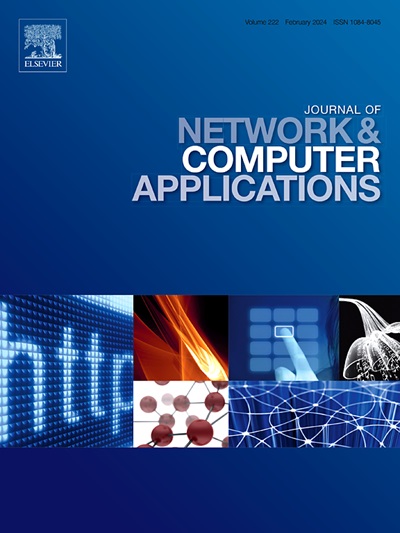轻量级可验证的隐私保护联邦学习
IF 8
2区 计算机科学
Q1 COMPUTER SCIENCE, HARDWARE & ARCHITECTURE
引用次数: 0
摘要
联邦学习(FL)由于能够在不访问训练数据集的情况下通过共享局部模型来完成模型训练而受到广泛关注。然而,已经证明共享模型仍然具有与训练数据相关的敏感信息。此外,恶意聚合服务器有可能返回被操纵的全局模型。虽然现有方案已经探索了FL中的验证问题,但这些方案大多采用依赖于模型维数的双线性配对操作和同态哈希计算,导致大量的计算成本。此外,一些方案需要多方共同管理一组或多组机密密钥以进行隐私保护和验证,这使得它们容易受到某些客户机和服务器之间的共谋攻击。因此,我们提出了一种双服务器架构下的隐私保护联邦学习机制。该机制采用基于编码矩阵计算的方法,保证了本地模型在客户端的隐私安全,并通过位于服务器端的两台服务器之间的协作实现了本地模型的聚合。为了验证聚合模型的正确性,设计了模型验证码(model Verification Code, MVC)机制。通过将MVC机制与编码矩阵计算有效地结合起来,在隐私保护和验证过程中,不需要所有客户端拥有相同的机密密钥集。同时保证了在服务器端恶意威胁下的安全需求。这种机制的计算开销仍然很低,因为它避免了复杂的加密原语的应用。我们在真实数据集上进行了大量的实验,实验结果进一步证明了该方案在保证模型有效性和可用性的同时,具有轻量级的特点。本文章由计算机程序翻译,如有差异,请以英文原文为准。
Lightweight verifiable privacy preserving federated learning
Federated learning (FL) has garnered considerable attention owing to its capability of accomplishing model training through the sharing local models without accessing training datasets. Nevertheless, it has been demonstrated that the shared models still possess sensitive information related to the training data. Moreover, there is a possibility that malicious aggregation servers can return manipulated global models. While the verification problem in FL has been explored in existing schemes, most of these schemes employ bilinear pairing operations and homomorphic hash computations dependent on the model’s dimension, leading to substantial computational costs. Additionally, some schemes necessitate multiple parties to collectively manage one or more sets of confidential keys for privacy preservation and validation, which renders them vulnerable to collusion attacks between certain clients and servers. Consequently, we propose a privacy-preserving federated learning mechanism under a dual-server architecture. This mechanism adopts a coding matrix computation-based approach to ensure the privacy security of local models at the client side and achieves the aggregation of local models through collaborative efforts between two servers situated at the server side. To verify the correctness of the aggregated model, a Model Verification Code (MVC) mechanism is designed. By effectively combining the MVC mechanism with the coded matrix computation, there is no requirement for all clients to possess identical sets of confidential keys during the privacy preservation and verification process. Meanwhile, this ensures the fulfillment of security requirements under the malicious threat posed by the server. The computational overhead of this mechanism remains low since it avoids the application of complex cryptographic primitives. We perform extensive experiments on real datasets, and the experimental results further demonstrate the proposed scheme exhibits lightweight characteristics while ensuring the validity and usability of the model.
求助全文
通过发布文献求助,成功后即可免费获取论文全文。
去求助
来源期刊

Journal of Network and Computer Applications
工程技术-计算机:跨学科应用
CiteScore
21.50
自引率
3.40%
发文量
142
审稿时长
37 days
期刊介绍:
The Journal of Network and Computer Applications welcomes research contributions, surveys, and notes in all areas relating to computer networks and applications thereof. Sample topics include new design techniques, interesting or novel applications, components or standards; computer networks with tools such as WWW; emerging standards for internet protocols; Wireless networks; Mobile Computing; emerging computing models such as cloud computing, grid computing; applications of networked systems for remote collaboration and telemedicine, etc. The journal is abstracted and indexed in Scopus, Engineering Index, Web of Science, Science Citation Index Expanded and INSPEC.
 求助内容:
求助内容: 应助结果提醒方式:
应助结果提醒方式:


